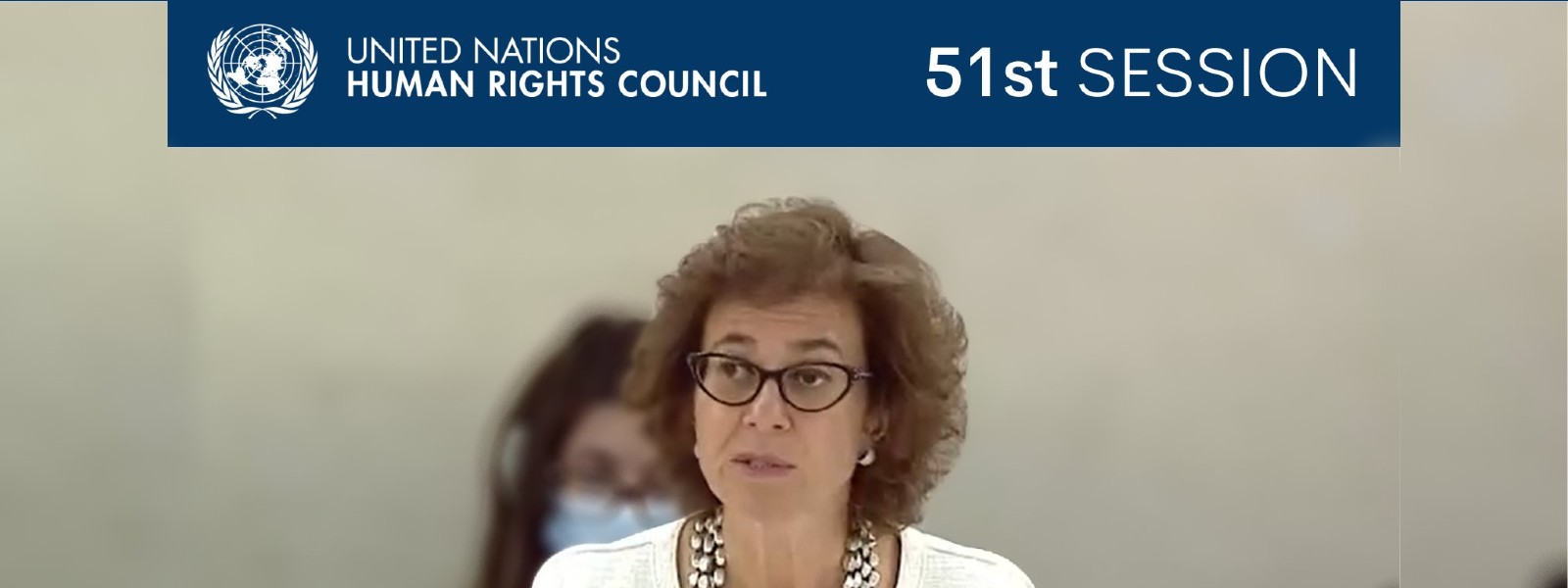The UN human rights office has been approached by State authorities from various countries for information on 10 Sri Lankans accused of committing human rights abuses.
While noting the Government’s rejection of resolutions 46/1 and 51/1, United Nations Deputy High Commissioner for Human Rights Nada Al-Nashif noted that an accountability project was established by her Office to collect, consolidate, analyze, and preserve relevant information and evidence and provide support to relevant judicial and other proceedings, including those in Member States, with competent jurisdiction.
She told the UN Human Rights Council today that the project is receiving a steady increase in requests from competent State authorities, including in relation to 10 named individuals to date.
“The project has made significant progress in developing a repository of information and evidence and based on identified gaps and priorities for further investigations. It is also actively engaging with civil society, including victims’ representatives,” she told the Council as it commenced its 54th Session in Geneva today.
The Deputy High Commissioner said that accountability is central to secure Sri Lanka’s present and future.
“While it remains the obligation of the Sri Lankan authorities to acknowledge past violations and undertake credible accountability measures, this Council and Member States can play an important and complementary role in advancing accountability,” she added.
The Deputy High Commissioner said that her office remains committed to supporting the Government and people of Sri Lanka in advancing reconciliation, and accountability as well as the full enjoyment of human rights.
She also noted that the economic hardship, tensions around economic and structural reform policies and the delay of local elections continue to give rise to protests. Land acquisition in the north and east for expansion of military installations, Buddhist heritage conservation at Hindu or Muslim sites, and forestry protection has also escalated tensions.
“Our Office continues to receive cases of misuse of tear gas and water cannons during demonstrations, affecting protestors and media personnel. Initiatives by victims to memorialise their loved ones have also been obstructed,” she said.
The Deputy High Commissioner said that the measures restricting the right to protest will only generate more tension in the country as they prevent people from expressing their grievances and engaging in critical debate.


